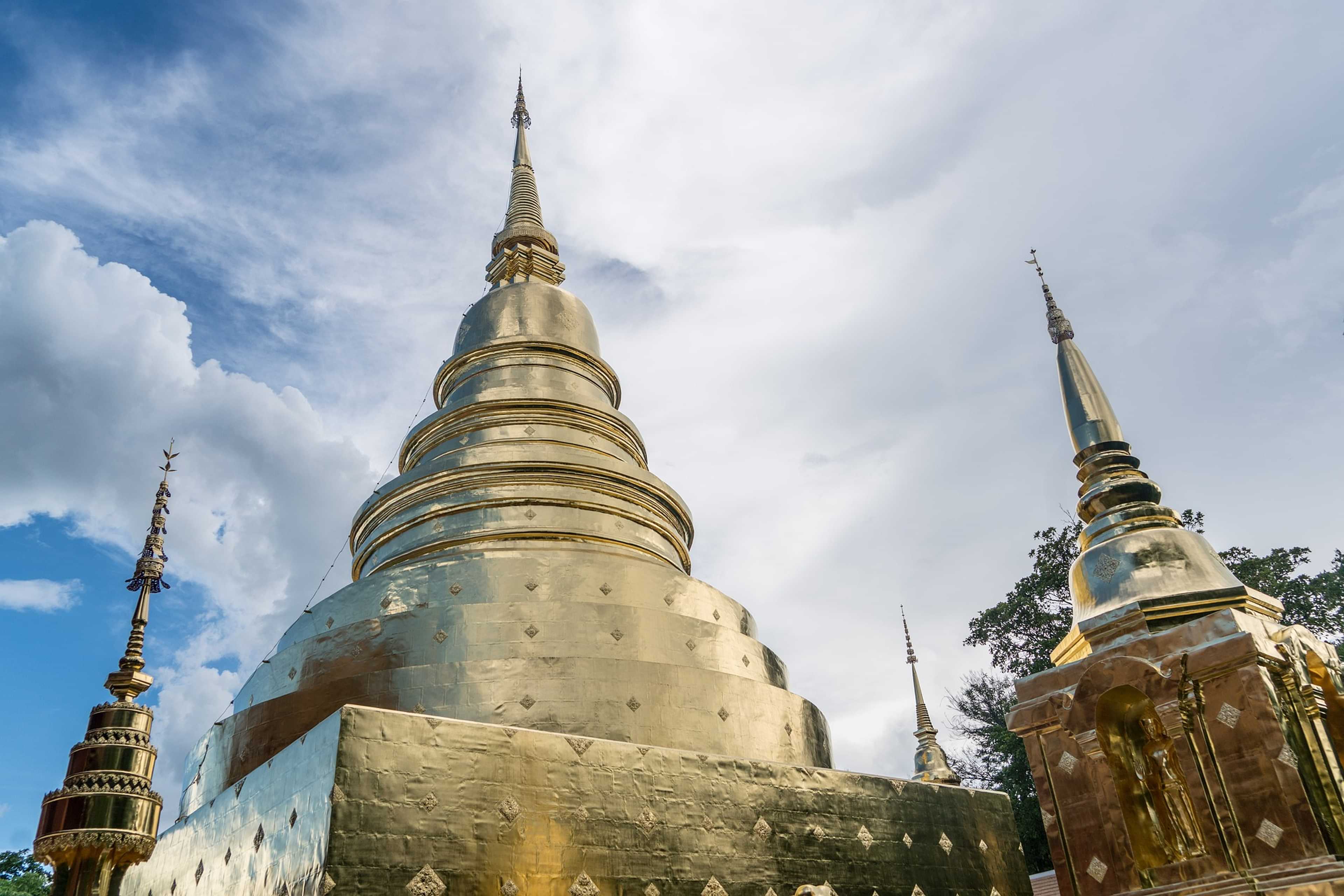
Live abroad
A guide to expat living in Chiang Mai
Destinations
Joanna Horanin
Hi, I'm Joanna, the author of The Blond Travels. In the worlds of Thailand and Portugal, I feel like a fish in water - and it's no coincidence! I've been exploring Thailand for over a decade, and I've settled in Portugal for 6 years now. My mission is to support Dreamers - just like you - in discovering these fascinating countries and helping those in love with them find their own place on Earth, preferably for good! Let's uncover these unique corners of the world together.
Are you a future expat that is wondering about living in Chiang Mai? Great! In this post I will give you the most useful information about moving and living in the Rose of the North.
I lived in Chiang Mai for 3 years. I worked as a teacher and I loved it! It was the best time of my life. Unfortunately, I had to move away, but I still go back and I travel there once a year for 2-3 months. You can say that I have been an on and off inhabitant of Chiang Mai for 10 years now. I love the city and I help others with changing their lives and moving there, too. I really hope that this article will help you to change your life and get to know Chiang Mai just like I got to know it.
Life in Chiang Mai is easy, easier than what you might imagine. There are condos to rent everywhere in the city, there are pubs and clubs, there are interest groups for digital nomads, entrepreneurs, volunteers, and travellers, there are supermarkets with western food, gyms, hospitals with English speaking doctors, and if you have kids you can send them to one of the international schools. If you want, you can have your piece of the west here, or you can easily immerse yourself in the culture.
Climate and pollution
Chiang Mai has the best climate in Thailand. Thais love to come here for holidays in December and January because then the temperatures fall to 10 degrees at night and 25 during the day.
Most of the year the weather is great, except March – May when the air is so polluted you don’t see the sun for days! This is one of the worst aspects of living there. If you have respiratory problems, you should think of moving from Chiang Mai during those months.
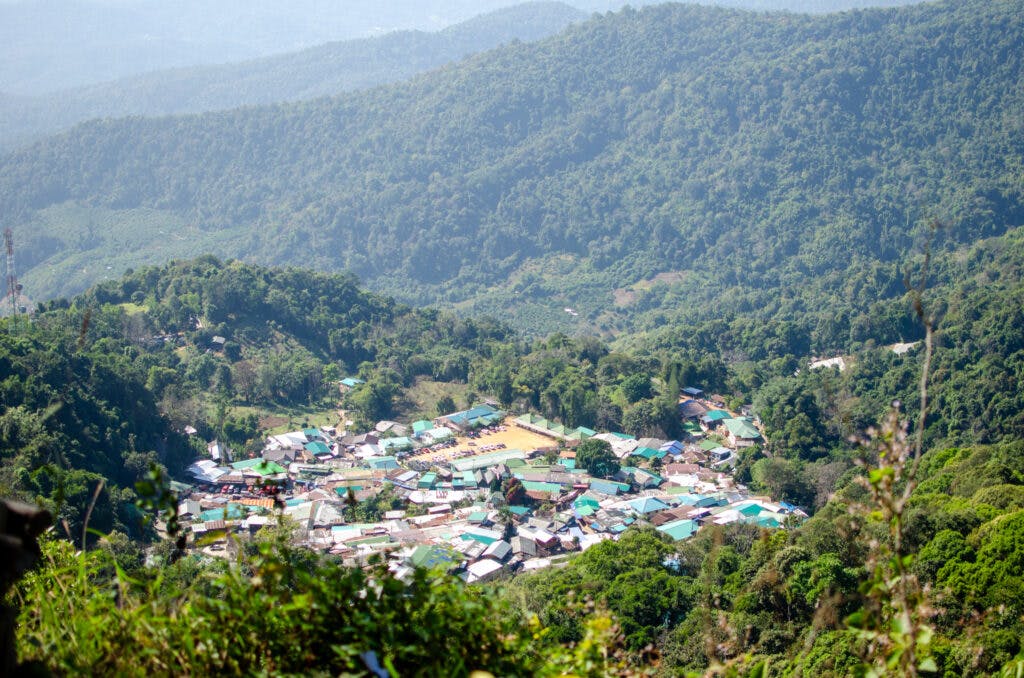
Hot season is so called burning season in Chiang Mai, when the farmers burn the leftovers after crops. They do it on a massive scale. This not only affects the air quality, but also raises the temperatures even more. The heat is unbearable at that time, reaching 50 degrees Celsius sometimes.
As I said before, it’s best to move somewhere else for that time.
Cost of living
Prepare yourself financially. Thailand is cheap, but it also depends what kind of lifestyle you want to have. You can totally live on street food, but if you fancy a pizza, or something western once in a while, you will pay more.
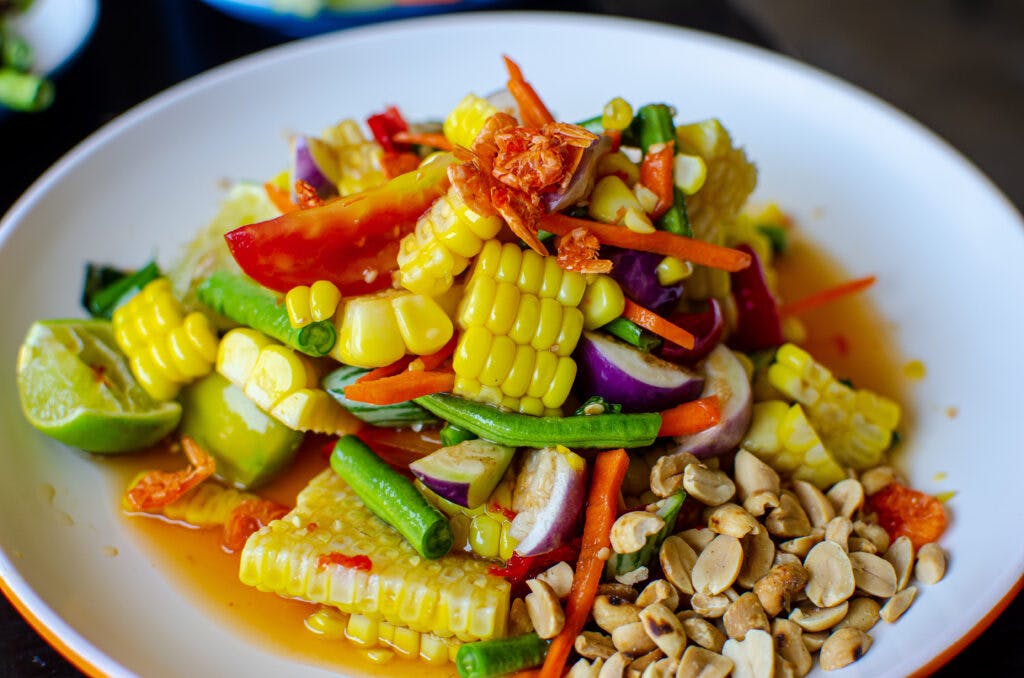
How do you like spending your free time? Going out, weekends away and hobbies, like rock climbing, or going to the gym, will cost you extra. Budget first and remember that in Thailand you can live on $500 per month, but you can also spend as much as you would in a big European city.
Find out more about cost of living in Thailand.
Visa
One of the most important things you should think of before you start living in Chiang Mai. This is also the most frustrating part of preparing for the move. The visa regulations change all the time, and they change suddenly, without any warning, so keep your eyes and ears open when you apply for your permission to stay in Thailand.
Many expats base their life in Chiang Mai on the tourist visa, which is easy to get, but it means that you need to extend it every few months and once you do that a couple of times, you must leave the country and wait a couple of months before you try to get in again. The visa regulations are very strict at the moment and getting a tourist visa for a longer stay is not a good idea.
If you are intending to work in Chiang Mai as an English teacher then your employer should help you to apply for the non-immigrant visa B. That gives you a permission to stay for a whole year.
It is possible to work in a different industry other than teaching, but finding such work is very difficult.
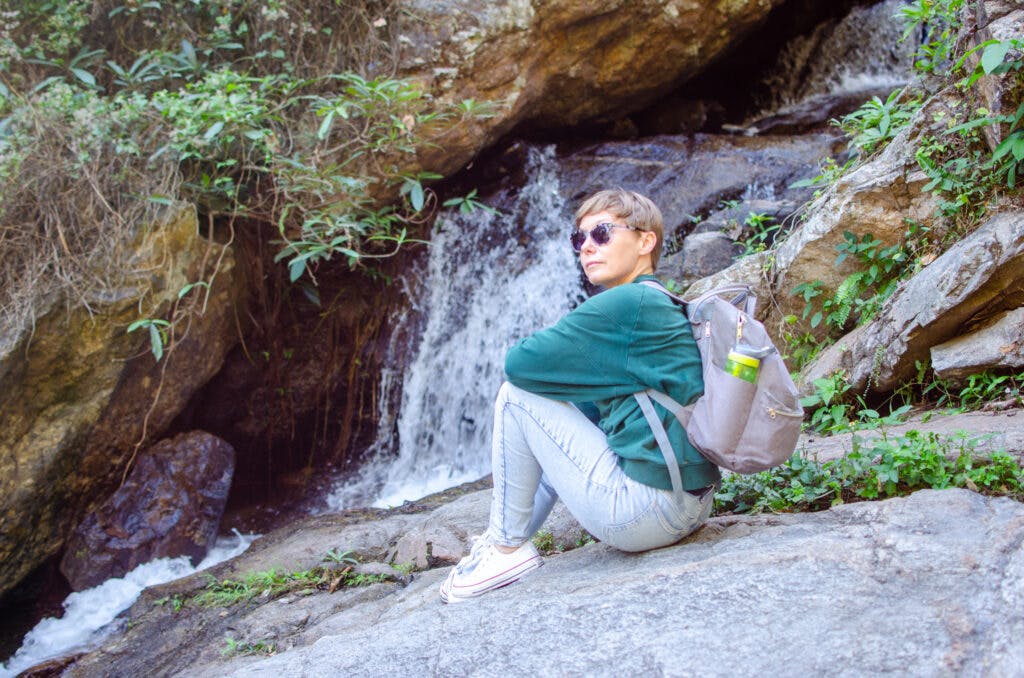
There are all kinds of other visas, like retirement visa, permanent residence and visa on arrival. You can read my post about long-term visas to Thailand here. Check with the Thai embassy in your country for details, and remember – do not overstay your visa, as it always equals a fine, or deportation.
The best solution is to contact your local Thai consulate and ask for more information there. Law changes all the time and it’s best to ask at the source.
In Chiang Mai, the immigration office is located near the airport.
Map
It’s open from 7:30 until 4:30 Monday to Friday, except national holidays. The staff speaks English, but be prepared for a very long wait.
Insurance
Before you leave your country, buy a good insurance. As you will live in Chiang Mai longer, it’s best to buy an expat health insurance. This way you will be able to go to a doctor without any cost, even if it’s just a routine visit.
Insurance I would like to recommend you is Luma. They provide comprehensive cover for expats and digital nomads. It is valid not only in Thailand, but also in other South East Asian countries. It is also much more affordable than other insurance for expats on the market.

Luma offers a wide range of health care plans suitable for both expats and Thai nationals residing in Thailand. Benefits such as lifetime renewal guarantee and full cover for cancer, both in- and out-patient are just some of the features. Get your quote
For people that are digital nomads, SafetyWing works really well. Genki has great options for expats, too.
Vaccinations
Before you go to Thailand, do your vaccinations. There are a couple that are quite important. Your doctor should advise you what you should have.
There is no obligation to get vaccinations though, so you don’t need to do them unless you’re coming from some of the countries in South America and Africa. Please check with your local consulate.
Accommodation
Life in Chiang Mai can be cheap, depending on your lifestyle. At the moment I rent a small studio in a nice, new apartment building, in the north of town. It is a room with a bathroom and a balcony. The monthly rent is 4,000 Baht, plus utilities – electricity depends on how much I use the air con, water is 200 Baht a month. During the winter the total amount is 4,500 Baht, during the dry season it is from 5,500 to 6,000 Baht.
You can find slightly cheaper accommodation, or go a little bit out of town and even rent a house. There are also 2-3 bedroom condos, with kitchens and big bathrooms, which are usually available from 10,000 Baht a month. Read more on how to find an apartment in Chiang Mai.
Transportation
I bought an almost new scooter – automatic Honda Click. It cost 27,000 Baht, but you can get an older, and cheaper bike for around 16,000-20,000 Baht or you can rent one for 150-200 Baht a day. The gas is very cheap and it costs me 100 Baht a week. Read more on how to rent, buy and sell a scooter in Thailand.
If you don’t fancy riding a scooter, you will have to hail a songthaew or tuk-tuk. Songthaews are big, red cars, and they are a little bit like buses that will take you everywhere. Here is a useful advice: a short journey by songthaew should not be more than 30 Baht. Stop the car and tell the driver where you want to go, if he agrees do not ask about the price, just get on. If he tells you a price, and you think it is too high, wait for another car.
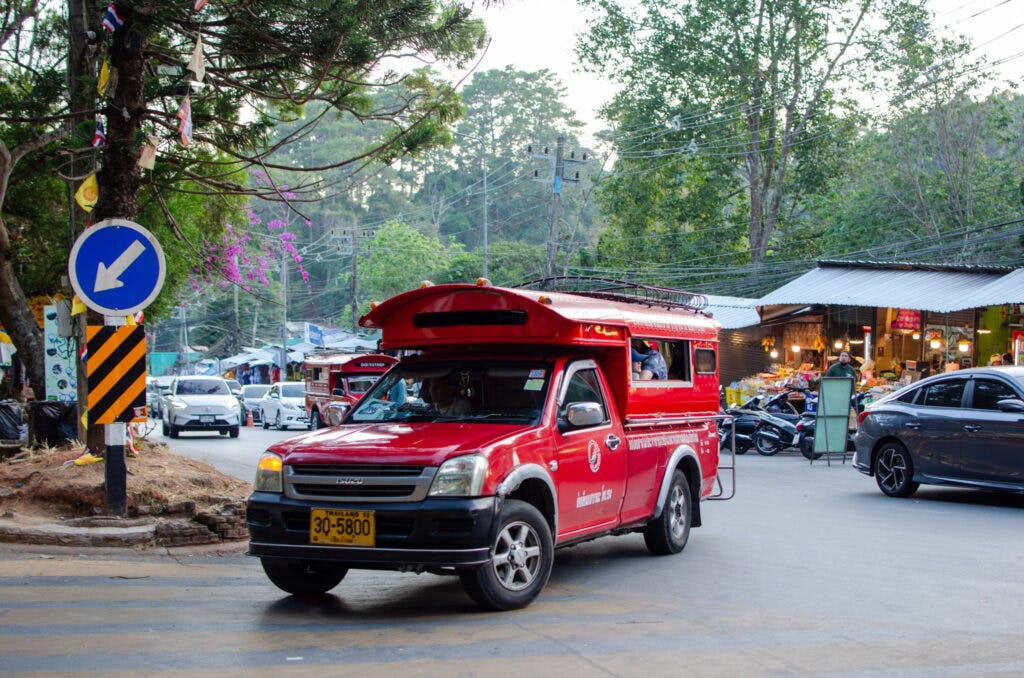
Tuk-tuks are a little bit more expensive and the drivers usually charge around 100 Baht for a trip.

Travel like a local using trains and buses! With 12Go you can now easily book tickets for rides through Thailand, Malaysia, Cambodia, Vietnam, Laos, or Singapore. Buy bus or train tickets
Another mode of transport is Grab – taxis, which work like Uber. You can download the app and you’re good to go. Rides are very cheap and taxis are widely available.
Food and drinks
Food is one of the cheapest things here. You can get a decent meal for only 20 Baht. As it is Thai food, it is always delicious and there are plenty of choices everywhere. You can buy rice with vegetables and meat, or just a quick snack. You won’t go hungry here.
Another thing the city is quite popular for is the many coffee shops in Chiang Mai. Quite a lot of them are hubs for expats, where they spend their days working on their laptops. The cafes have internet and spaces to work on. Coffee is usually around 50-60 Baht.
Going out is the most expensive part, in my opinion. A beer in a bar costs 70 Baht, a cocktail anything from 120 Baht. Thai beers and whiskeys are not the best and you might get sick of them really quickly. If you want to buy an imported beer, like Guinness, that will cost you around 200 Baht. Check out my post about nightlife in Chiang Mai.
Shopping
If you want to do some shopping, then there is no better place than Chiang Mai. The city is full of shops and shopping centres and you will find everything here, no matter what your budget is.
Healthcare
Chiang Mai has very good healthcare and the hospitals here are modern and reliable.
Before you go, it’s best to have expat insurance, which will help you to get the best possible care. For digital nomads, I recommend something a little cheaper, but just as good – insurance for digital nomads.
The best hospitals in Chiang Mai are:
- Chiang Mai Ram Hospital
- Maccormik Hospital
- Bangkok Chiang Mai Hospital
- Lanna Hospital
You can go to see a GP there, get care after an accident, have surgeries performed and you can also have your annual health check up.
Spending your free time
If you have enough time to travel around Asia, then you will have plenty of options to do so. The Chiang Mai International Airport has flights to Laos, Cambodia, Burma, China, Hong Kong, Singapore. You can also fly to any of the islands in the south of the country.
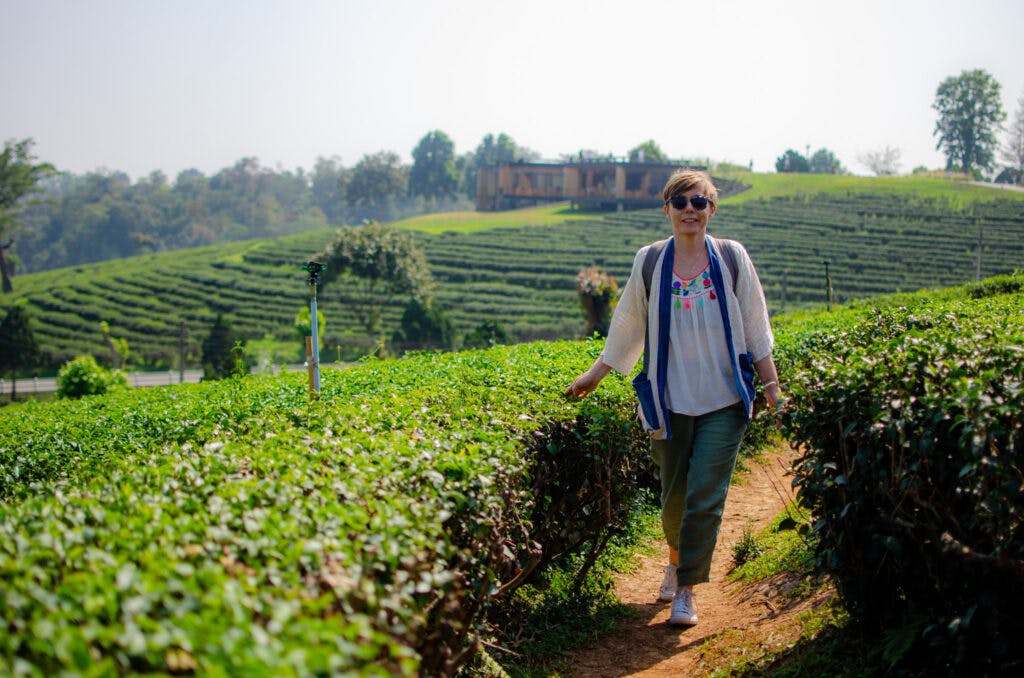
If you are after a cheaper option to travel, then you will easily find buses here that go to Burma, Laos and Cambodia.
The north of Thailand is worth exploring. If you drive a motorbike then you can do the Mae Hong Son loop, or Samoeng Loop and explore other places on your two wheels. Trains and buses are also widely available and you can catch one easily to your chosen destination.
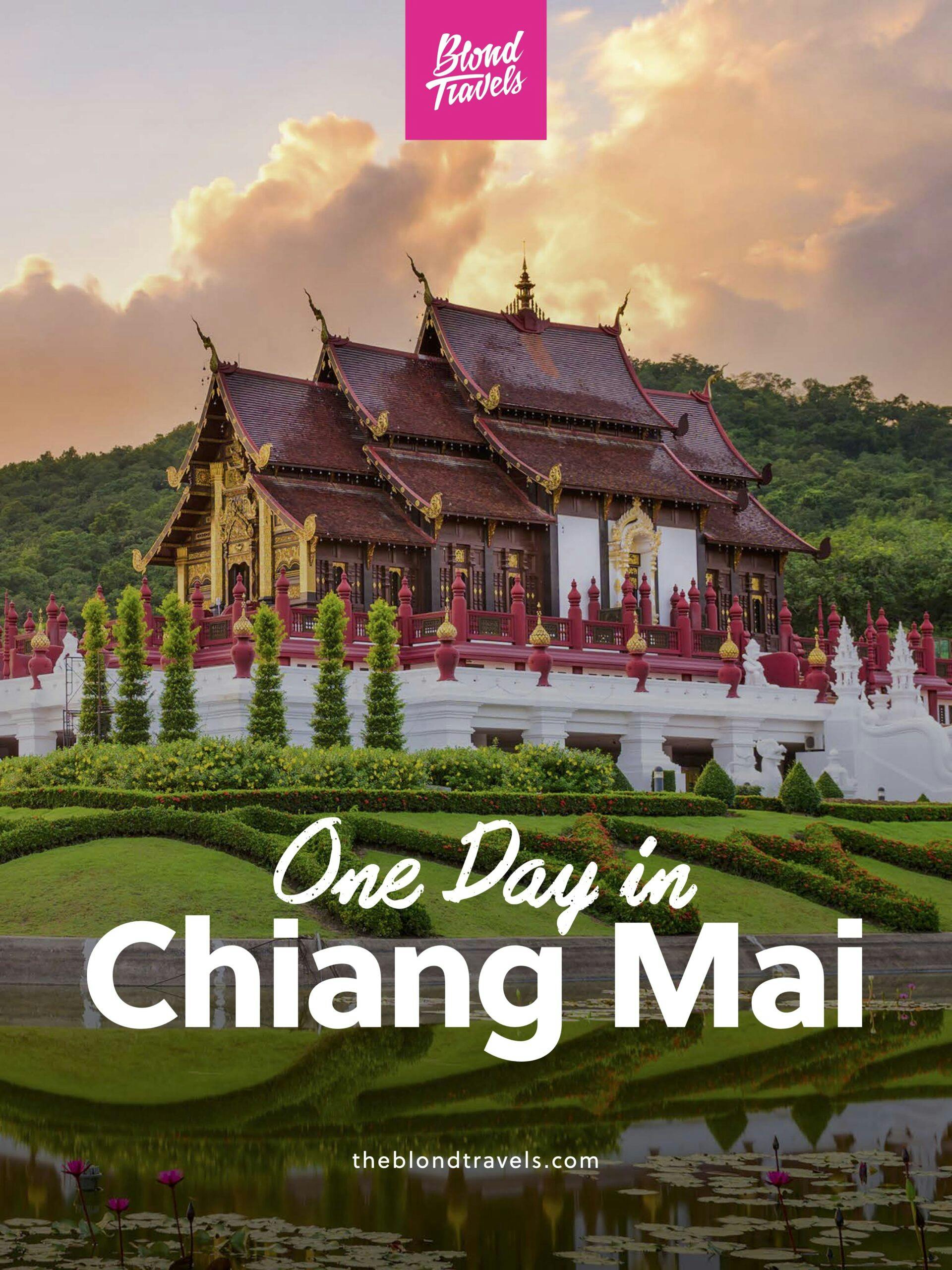
Chiang Mai Ebook Guide – My handy ebook guide includes everything you need to know about Chiang Mai, from the best sights to see to the best places to eat and stay. Save money with exclusive discounts and make the most of your trip! Find out more
You can spend every day exploring the surrounding areas. I also gathered for you the ideas for day trips outside of Chiang Mai.
If you need a guide and transportation, I highly recommend Take Me Tour, my trusted partner. They connect locals and tourists and show them the best, most hidden and most interesting places in Thailand.
Meeting people
Expat life in Chiang Mai might get lonely sometimes. If you would like to meet others, you can attend one of the meet ups – you will find a list of them on Meetup.org. There are also a lot of groups on Facebook. You can easily search for them by putting ‘expats in Chiang Mai’ in the search box on Facebook to get a lot of results.
I would recommend joining Couchsurfing. You don’t need to host anyone, or be someone’s guest. There is a very lively Couchsurfing group in Chiang Mai that meets every week during the high season. It’s an opportunity to meet a lot of people.
Coming with your pet
If you would like to take your dog or your cat with you, please remember that it will need a special travel document and vaccinations. It all depends on the airline as well. Some require you to have additional vaccines, some are a little bit more relaxed about it. Speak to them first before you go.
There are a lot of stray cats and dogs in Thailand and they roam the streets. Bear this in mind if you want to walk your dog. Personally, I would be quite scared to do it. Dogs in Thailand might seem quite laid back, but they are very territorial and vicious when they feel threatened. However, I know a lot of expats bring their pets with them and it’s not really a problem. Join a Facebook group and ask around for advise there.
The biggest problems expats face when bringing their pets with them to Thailand is accommodation. Most landlords don’t want any pets in their flats or houses. It’s really hard to find something, where dogs or cats are accepted. If you really must take your pet with you, be prepared for difficulties. You might have to pay much more, or just live in a place that is not that great.
Schools for your children
There are some international schools for foreigners. They have international teachers and lessons are often in English. Thai and Chinese are extra languages that children learn.
These are private schools and they are often quite expensive for Thailand. Check out this website for a list of international schools in Chiang Mai.
Why is Chiang Mai so attractive?
Chiang Mai has been popular among digital nomads and expats for a long time now. It’s mostly due to its low cost of living, laid back lifestyle and a mix of western and Thai cultures.
Chiang Mai is still affordable, although the influx of foreigners and Chinese investors are slowly changing that. It is easy to see that the city in 10-20 years will be much bigger and much more expensive. However, for the time being, it is a great place to live.
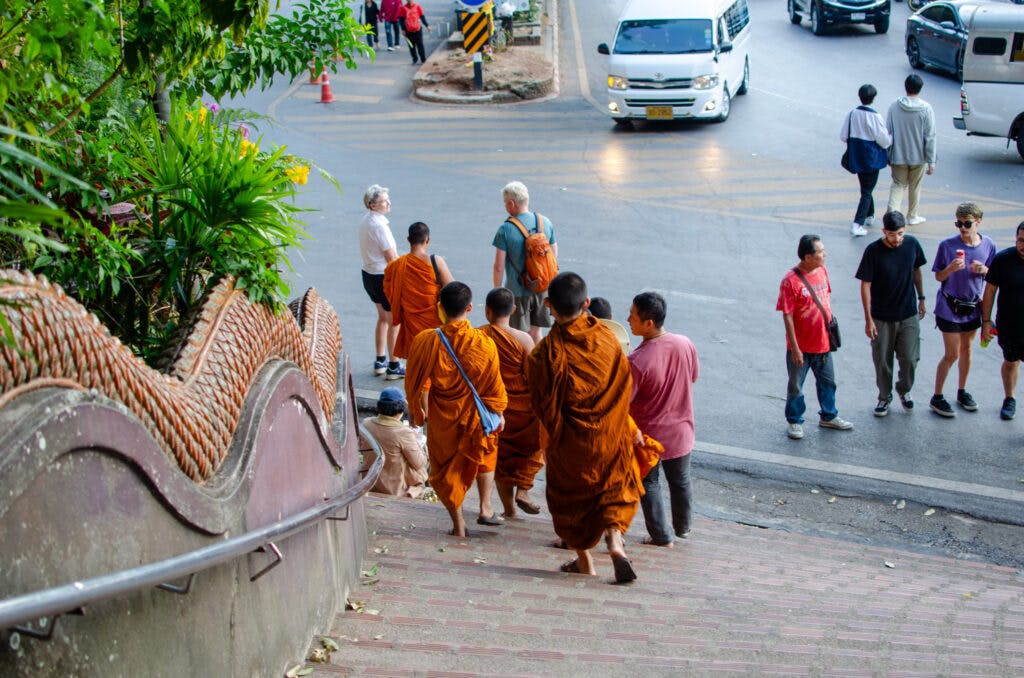
The north of the country is a bit different from the rest. After a year of living there I went to Bangkok and was shocked how rude and ignorant the locals were comparing to those living in Chiang Mai.People in the north are gentler, calmer and much more laid back and this affects everyone who lives there, too.
Chiang Mai also offers the best of both of the worlds. You can totally immerse yourself in the culture, live among the Thais, in a small side street and not see tourists for a very long time. You can also go to shopping malls, sip skinny latte in a modern cafe and go to the cinema every single weekend.
The city is very close to nature. In a matter of minutes you can find yourself by a waterfall, or in the mountains. Day trips are easy and make your life even more relaxed.
I think living in Chiang Mai can be the best thing that will happen to you. The city is laid back and your money will go a long way (definitely longer than in the west).
I hope this post has helped you in preparation for your move. Enjoy Chiang Mai and let me know how you’re doing in the comments!
Do you think I forgot something? Let me know! Leave a comment!
This post includes affiliate links.